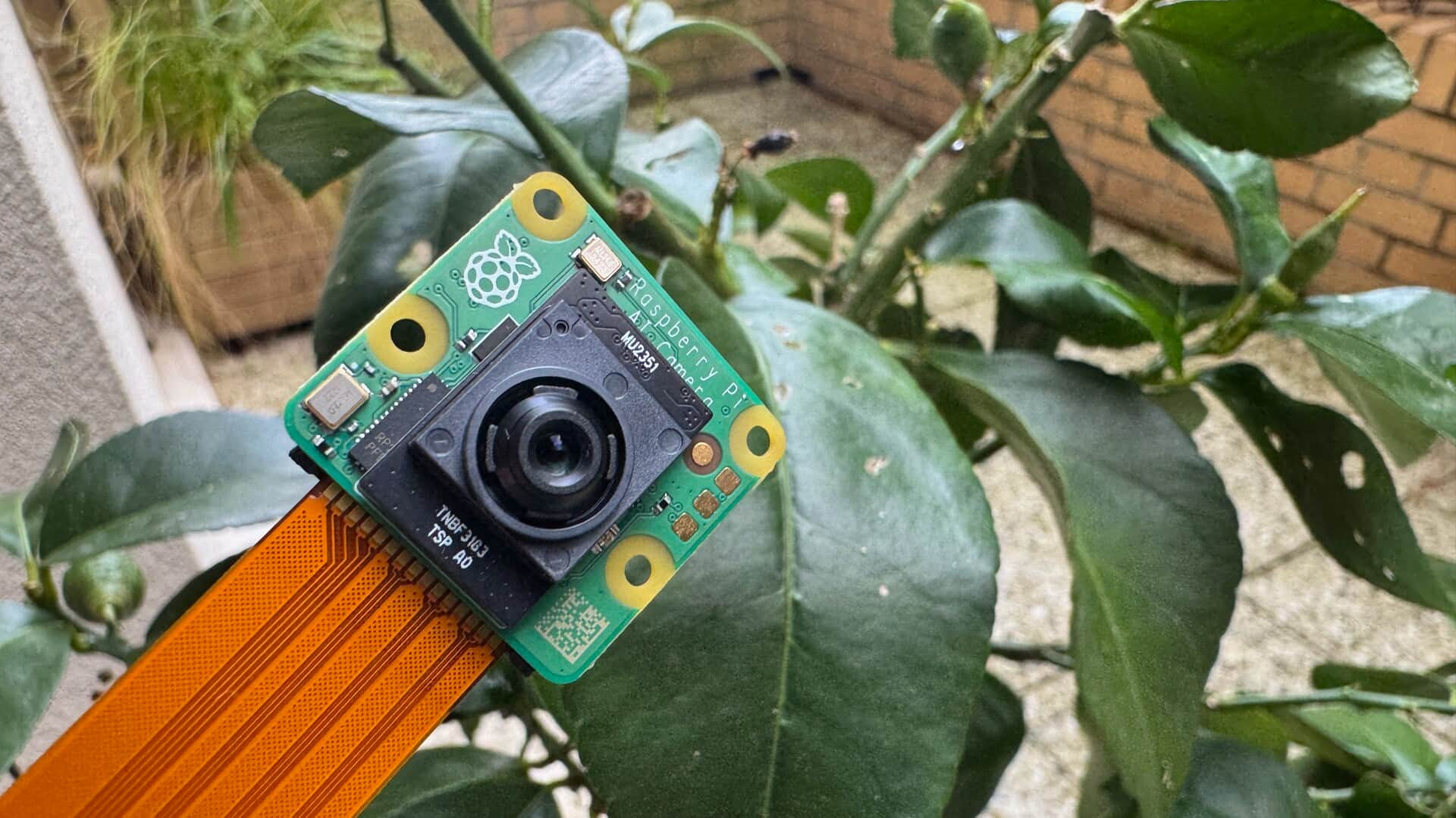
Raspberry Pi has launched a camera with AI capabilities
What's the story
Raspberry Pi, known for its compact and budget-friendly single-board computers, has just dropped its latest gadget: the Raspberry Pi AI Camera. Priced at $70 (around ₹5,860), this nifty image sensor comes with on-board artificial intelligence (AI) processing capabilities. It's perfect for a variety of applications, especially those that need some serious visual data crunching.
Technical specifications
A blend of Sony's sensor and Raspberry Pi's chip
The Raspberry Pi AI Camera is powered by a Sony image sensor, the IMX500, along with Raspberry Pi's own microcontroller chip, the RP2040. This cool combo lets the camera snap pictures and process them using popular neural network models. Plus, since the processing happens right on the camera, the host Raspberry Pi doesn't get bogged down with visual data tasks, so you don't even need a separate accelerator.
Product details
Compatibility and dimensions
The new AI Camera module is compatible with all Raspberry Pi computers, ensuring broad usability across the brand's product range. Despite its advanced features, the device maintains a compact form factor similar to its predecessor, the Raspberry Pi Camera Module 3. The AI Camera measures 25mm x 24mm in size but is slightly thicker due to the structure of the optical sensor.
Advanced features
Pre-installed with object detection model for real-time operation
The Raspberry Pi AI Camera is ready to roll right out of the box with the MobileNet-SSD model, a cool object detection model that works in real-time. This nifty feature opens up a world of possibilities for different applications. While it was originally made for tech lovers and homelab projects, Raspberry Pi is now mainly focused on serving businesses. They use Raspberry Pi devices in their own products or in assembly lines for their internal industrial needs.
Use cases
Potential industrial applications
The Raspberry Pi AI Camera might just be a game-changer for smart city sensors, helping them spot vacant parking spots or keep an eye on traffic flow. In factories, this little gadget could make life easier by doing simple automated quality checks on items passing under its lens.